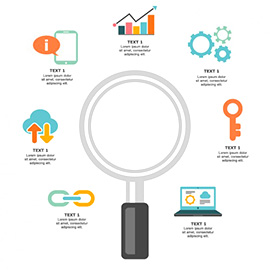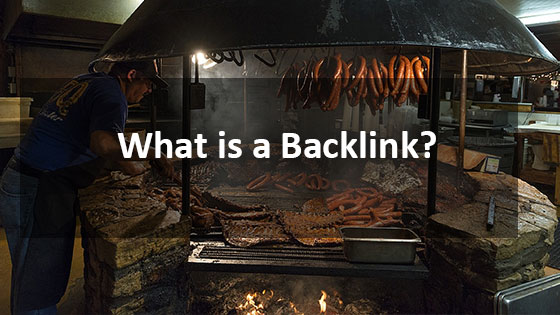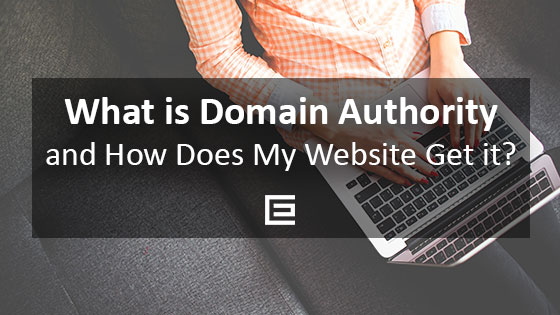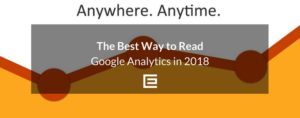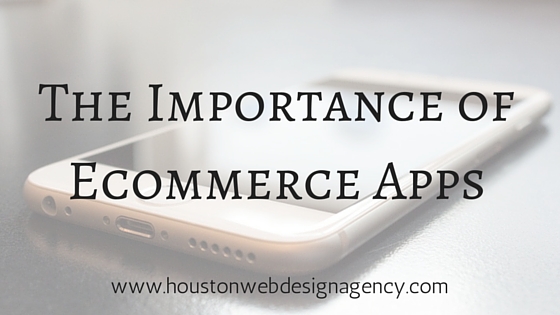When deciding where to show a site in the search results, Google and the other search engines use about 200 ranking factors to make their decision. One factor that is often mentioned in the SEO community is backlinks. But are backlinks still important to SEO in 2018?
What is a Backlink
The simplest definition of a backlink is: a different website that points to your website. You can think of them as interactions between websites. Backlinks are also referred to as an “inbound link” or “incoming link.”
A backlink is signified by the href attribute in HTML within the code. Writing a site’s URL does not automatically create a backlink. The link is only created when the href code is added to the HTML, so when a user clicks on the link they are directed to the new site. On the website, the backlinks are often shown to the user with an underline and a different colored font.
Backlink:
Google Search Console
Not a Backlink:
https://www.google.com/webmasters/tools/
Finding Backlinks for a Website
As we mentioned in our previous blog “What is a Backlink”, your website may already have links pointing to it from places like:
- Your company’s Facebook, Twitter, or Instagram account;
- Reviews for your business on Yelp;
- Your business listing on Google;
- The Houston Metropolitan, West, Northwest, or other Chamber website;
- Your business address on Google Maps, Apple Maps, Bing Maps, or MapQuest;
- Details about your company on Yellow Pages;
- Articles written about your business in the Houston Chronicle;
- Houston Business Journal’s Book of Lists; and
- Greater Houston and South Texas Better Business Bureau.
Here are other ways and website that may give your business a backlink.
Business Listings
Your website should be listed in local directories that serve the Houston area. Not only are these excellent places for getting a backlink, it also helps users find your website.
National Directories
Sites that visitors use to look up reviews of businesses should include a listing with a link to your website. These include places like Yelp, Houzz, Angie’s List, and TripAdvisor. If you have job listings on your website, you can share them on Indeed, Glassdoor, Career Builder, or Monster.com.
Industry Directories
Your business should be listed on nationwide directories for your industry. There are directories dedicated to lawyers, dentists, auto mechanics, and many more.
Social Media
When you write a new blog post, you can share it on your Facebook page with a link to that article. You can tweet about an event you’re attending using that event’s hashtag with a link to details on your site about how you’re participating. Sharing your job ads on LinkedIn will give you a link back to your website while putting your company in front of potential new employees.
Blog Commenting
Commenting on a blog post or article on someone else’s website can give you a backlink to your site as well. Sometimes when you leave your comment, you can also include a link to your own website when posting. Be sure when you’re using this technique that it’s done in a non-spammy way – for example, commenting on a news article about a new business in your shopping center is okay, but saying “buy my widgets today” on a lawyer’s site isn’t relevant to their site’s content, and will often be removed by that blog’s webmaster.
Guest Blogging
If you have a well-thought-out idea and solid advice about a topic, you may offer that advice to other websites that relate to your topic. This content should not be self-serving or sound like you’re trying to sell something. An example would be writing an article about local trails that are great for running on, and asking a local running store if they want to share on their site.
More Backlinks, Higher Ranking
When the major search engines first came out over two decades ago, backlinks were the quickest and easiest way to get a website to rank. All people needed to do was build a website and add tons of links from anywhere on the web, and POOF! You were on the first page of Google for your keyword.
As time went on, the search engines got smarter and caught onto this game people were playing, causing these backlink-filled websites to tank in the rankings. As a result, backlinks got a bad reputation in the SEO industry for a while, and many believed that Google no longer recognized backlink building as a good tactic.
Even today, there are still some services that will offer to get you thousands of links overnight for very little money. Sure, your website might skyrocket up to the top of Google immediately, but then it’ll fall hard, never to be heard from again. Those old methods of “more backlinks, higher ranking” can cause your domain to incur penalties from Google, and potentially even be removed from Google’s index altogether.
In 2018, stuffing your website with backlinks may hurt more than help.
Google is now smart enough to determine the quality of the backlinks directed toward a website and know what is legitimate versus illegitimate. Therefore, backlinks are still a part of the search engine ranking factors and having them in moderation (like so many things in life) is still a good thing to do.
Does Google Use Backlinks
Google does like backlinks and even relies on them. Backlinks help Google recognize what is good and helpful content out on the internet. After all, Google Search is just an algorithm. It doesn’t know that your advice on the best mesquite wood to use to make barbecue is good or reliable. However, if enough people are talking about how great the flavor is, and thereby referencing your page and advice on other websites, that will help Google know that your content is strong, and they’ll reward your ranking based on those signals.
In 2018, backlinks help Google recognize what content is good and reliable.
Creating Relevant Backlinks
We’ve touched on the fact that a website should have backlinks in moderation, and that Google does find them to be a helpful tool to inform their algorithm.
The next thing to consider when planning what backlinks to add to your website is how relevant they are to your site and content. The more relevant the links are, the more credit Google will tend to give you for the link. So, the goal is to not just get links to your website but to include ones with content that pertains to your own.
For example, if you are a local sporting goods store and got a link to your website from the Houston Astro’s website, with the Astros saying that you’re the provider of their cleats, that would be a very relevant link. However, if that same sporting goods store got a link from The Museum of Fine Arts, it’s a less relevant backlink. A link from a restaurant in a small town in Maine would be even less relevant.
Contact our Digital Marketing Specialists today
Want to learn more about how backlinks can improve your SEO and generate more traffic for your website? Contact TheeHouston.Agency for expert digital marketing services. Contact us at 281-764-9070 or fill out our handy contact form.





